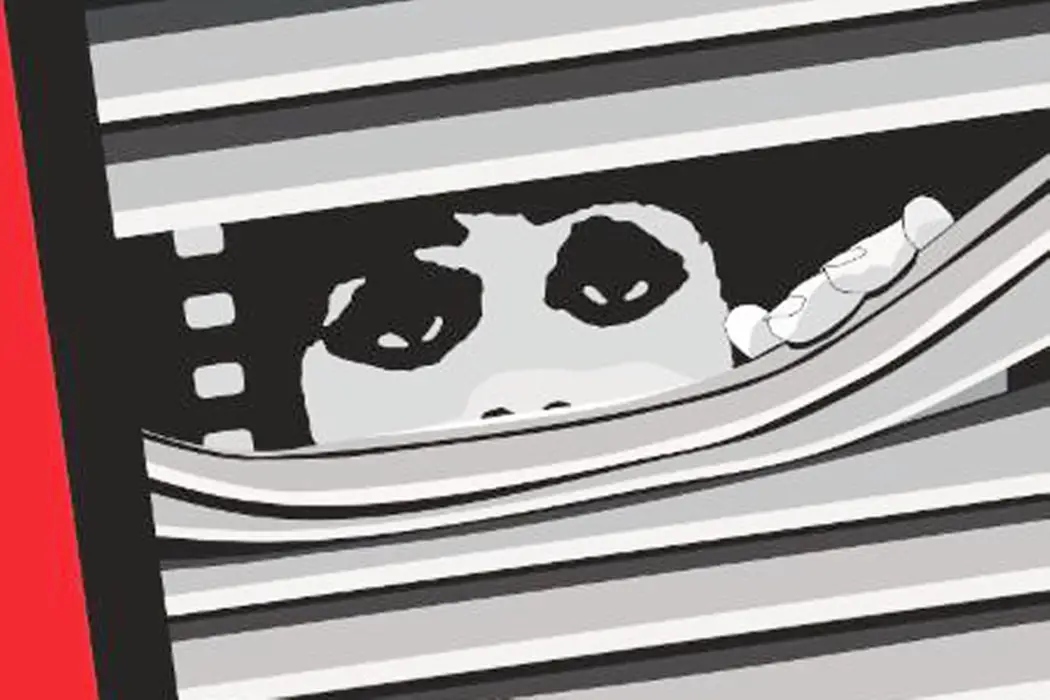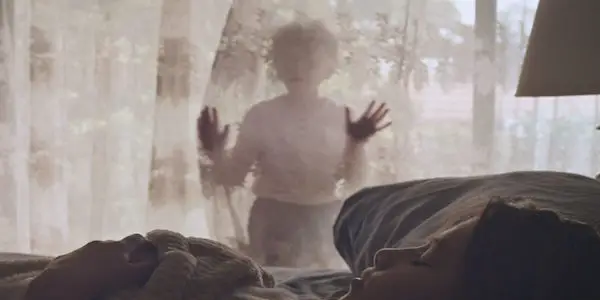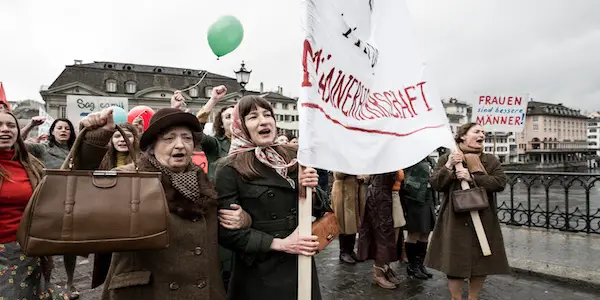53rd Chicago International Film Festival Report

Laura Birnbaum is a proud film critic and writer from…
It’s a rainy October night in Chicago and the city is humming with the familiar fusion of sounds that make up the urban landscape. Cars slash through oily puddles on the road while a distant saxophonist plays Marvin Gaye covers that echo through River East. I am here in the sparse but bustling neighborhood in Chicago (adjacent to Navy Pier) known primarily for the theater that resides within it. I am walking from the Red Line Train to the theater, vehemently weaving my way through the sidewalks, trying to make sure I get to my first screening on time.
This year marks the 53rd year of The Chicago International Film Festival, featuring 139 films selected by the committee for this year’s showing. It is a festival known for bringing cinephiles from all walks of life together to celebrate the artistic medium we all fervently adore. This year, for me, comes with an element of upset. I know, going into this, that my schedule outside the festival is limited, and thus, I will be able to see only a select few of the 139 films being shown.
That being said, it is a privilege to attend Chicago International Film Festival, and I am eager to share with you the cinematic wonder that is to come.
Liquid Truth (Carolina Jabor)

In the wake of allegations against certain men in power, Liquid Truth (Aos Teus Olhos) comes to us with profound relevance. In the film, we follow swimming instructor, Rubens, played in a spellbindingly complex performance by Daniel de Oliviera, as he is accused of having inappropriate contact with one of his young students. This film comes to us from Brazil by director, Carolina Jabor, a creator from whom I hope to see much more.
In both structure and story, Liquid Truth is reminiscent of the 2008 film, Doubt, but it certainly deserves to stand on its own. Where the thematic subtext within Doubt is faith, in Liquid Truth, the foundation is forged from doubt. We, as the audience, join in the concern of the characters surrounding Rubens as allegations are made against him, and as the red flags continue to wave, this is a film that will keep you submerged in state of disquieted skepticism from start to finish.
Wind Traces (Jimena Montemayor)

In Wind Traces (Restos de viento), writer/director Jimena Montemayor creates an empathetic emotional landscape rich with surrealist imagery, mystery, and sincerity. Set in 1970’s Mexico, we follow Carmen (Dolores Fonzi) as she tries and often fails to care for her two children amid her decline into alcoholism. A mysterious trauma weighs heavily over the three of them, though we only catch glimpses of what transpired, gradually hinting at the source of their troubles.
The beauty that carries the film can be found in a few areas; in the performances, the mysterious creature that visits the children, and all that it represents. We do not know what or who the creature is until the end, and its mystical and surprisingly playful presence captivated me throughout the film. Where the film weakens, however, is in the pacing. It lingers in prolonged silence far too often, offering up little to nothing in the black spaces. Still, this is a beautifully heartfelt film that hasn’t left my thoughts.
Author’s note: bring tissues.
The Divine Order (Petra Volpe)

Images of a changing world open Petra Volpe‘s new film, The Divine Order. The year is 1971, and human rights movements are beginning to shake the world, glimpses of which are shown to us by means of footage from the time. Starkly juxtaposed against this historical montage is the still image of a quaint town in Switzerland where the film takes place, in which our narrator explains that here, “time stands still.”
This voice belongs to Nora (Marie Leuenberger), who lives in the town with her husband and two children. It is through her journey that we traverse the dusky waters of the women’s suffrage movement for Swiss women, who up until 1971, did not have the right to vote. This is a thoughtful film – exploring the individual stories of many women, who through their collective individuality, politically amalgamate together to fight for their rights. It was a frightening time for women then, as it is now, but this heartfelt film paints a spirited portrait of the many women who have helped shape the world.
In addition to widespread festival accolades including, “Winner of the Audience Award for Best Narrative Film,” at the Tribeca Film Festival, Switzerland has selected The Divine Order to be their submission into the Oscars’ Foreign-Language category.
Reflections: Chicago International Film Festival
A film that assumes the intelligence of the viewer is something us cinephiles greatly treasure. Sure, we like a good, fast-paced film that ties everything from the exposition to finale into a nice bow, but more often than not, we want to piece together the puzzle on our own. We want to solve the mystery and explore the plethora of decipherable allegories placed in front of us without the beckoning call for ‘an answer.’
Many filmmakers know this (they are audience members too, after all) and create their films with the audience’s intelligence in mind. A great majority of the films I saw at this year’s festival assumed such intelligence, and more often than not, it paid off. There is, however, a trend within this ‘I assume you’re smart enough to figure this out yourself’ spectrum by which I have personally become jaded.
A great deal of the films I saw this year (both in and out of the festival) are filled to the brim with characters who gaze pensively off into vacant spaces, their faces filling the screen, the meaning behind their expression almost always in question. They walk listlessly toward unknown locations while the music surges and swells. These can be wonderfully arresting cinematic moments, but the frequency and duration in which it occurs is rather unmoving, and I feel I can only watch a character stare and walk for so long. My hope is that we will see more from filmmakers who push themselves past these platitudinous points and return to the heart of what they’re after.
Speaking of listless walks, it’s time for me to weave back to the tOrain. I’m not terribly eager to re-immerse myself in the cold rain, but so long as Marvin Gaye is still echoing around town, I’ll be well-equipped.
What are your thoughts on any of the films mentioned?
Does content like this matter to you?
Become a Member and support film journalism. Unlock access to all of Film Inquiry`s great articles. Join a community of like-minded readers who are passionate about cinema - get access to our private members Network, give back to independent filmmakers, and more.
Laura Birnbaum is a proud film critic and writer from Chicago. When she's not watching independent horror films, she's likely smoking a cigar on a rooftop somewhere, thinking about which indie horror film to watch next.












